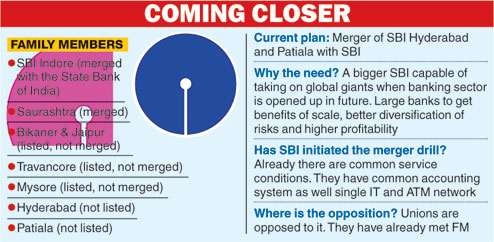New Delhi, March 29: The government today allowed 100 per cent FDI through the automatic route in the marketplace format of e-commerce retailing, giving a boost to foreign companies such as Amazon and eBay as well as domestic players such as Flipkart and Snapdeal.
However, the guidelines issued by the department of industrial policy and promotion (DIPP) on FDI in e-commerce did not permit foreign direct investment in the inventory-based model of e-commerce.
The DIPP, in a press note, said e-commerce marketplace could provide support services to sellers in respect of warehousing, logistics, order fulfilment, call centre, payment collection and other services. However, such entities will not exercise ownership over the inventory.
"Such an ownership over the inventory will render the business into inventory-based model."
According to the norms, a marketplace entity will not be permitted to sell more than 25 per cent of total sales from one vendor or its group companies.
"E-commerce entities providing marketplace will not directly or indirectly influence the sale price of goods or services and shall maintain level-playing field," the guidelines said.

Snapdeal said the norms would provide clarity to the country's fast growing e-commerce industry.
"These guidelines recognise the transformative role that e-commerce marketplaces will play in the Indian market. It is a comprehensive announcement, which will pave the way for accelerated growth of the sector in India," it said.
IT industry body Nasscom termed the 25 per cent cap on sales from a single vendor or group entities as "restrictive".
"...more so if the vendor sells high value items. The industry might face difficulties in case of sale of electronic items, where a vendor maybe offering exclusive access to certain items or discounts. Marketplaces have no control on how a product is priced and only organise 'sales' where vendors participate," Nasscom said in a statement.
"In order to provide clarity to the extant policy, guidelines for FDI in e-commerce sector have been formulated," the DIPP said.
The e-commerce industry has grown rapidly in India logging a growth rate of over 60 per cent. Studies have estimated the size of the industry at around $38 billion by the end of this year, and it is expected to touch $50 billion in 2020.
To bring clarity, the DIPP has also come out with the definition of "e-commerce", "inventory-based model" and "marketplace model".
The marketplace model of e-commerce means providing an IT platform by an e-commerce entity on a digital and electronic network to act as a facilitator between buyers and sellers.
The inventory-based model of e-commerce means an e-commerce activity where an inventory of goods and services is owned by an e-commerce entity and is sold to consumers directly.
A marketplace entity will be permitted to enter into transactions with sellers registered on its platform on a business-to-business basis.
According to the guidelines, e-commerce means buying and selling of goods and services, including digital products, over digital and electronic network. In the marketplace model, goods/services made available for sale on the website should clearly provide the name, address and other contact details of the seller, the DIPP said.
"Post sales, delivery of goods to customers and customer satisfaction will be the responsibility of the seller," it said, adding that the payments for sale may be facilitated by the e-commerce entity in conformity with the RBI rules.
"Subject to the conditions of FDI policy on services sector and applicable laws/regulations and other conditionalities, sale of services through e-commerce will be under the automatic route," the guidelines said.
At present, FDI up to 100 per cent under the automatic route is permitted in business-to-business e-commerce, but no FDI is allowed in B2C.
The new guidelines are expected to facilitate the entry of foreign players into the booming Indian e-commerce industry. Chinese retailer Alibaba, which holds a significant stake in payment solutions provider Paytm, has already expressed interest to enter the market.
The move will also help domestic players to tap investments easily.
Opposing the move, Praveen Khandelwal, secretary-general of the Confederation of All India Traders (CAIT), said, "It is nothing but (allowing) a back door entry to global retailers, which will facilitate them to sidestep restrictions in multibrand retail since e-commerce has no geographical restrictions."
Vivek Gupta of BMR Advisors, said, "The fact that this position has been stated after close to $10 billion have been committed to the sector... meant that the government had very little elbow room to really state a policy position. And hence, it has chosen to bless the marketplace model with some safeguards that the market place should not act like the retailer."











